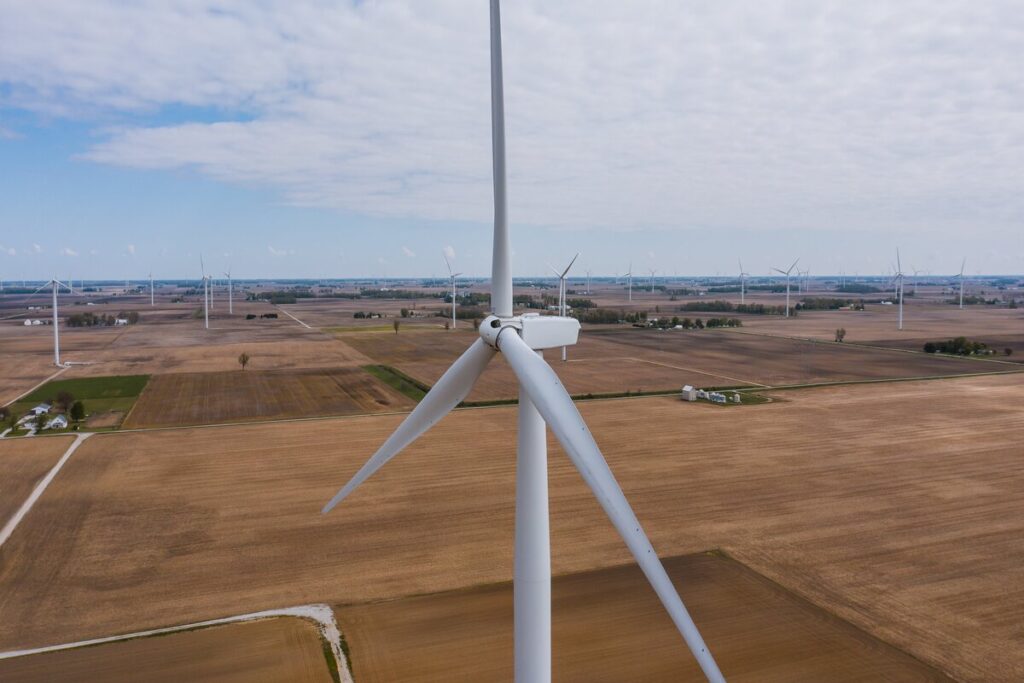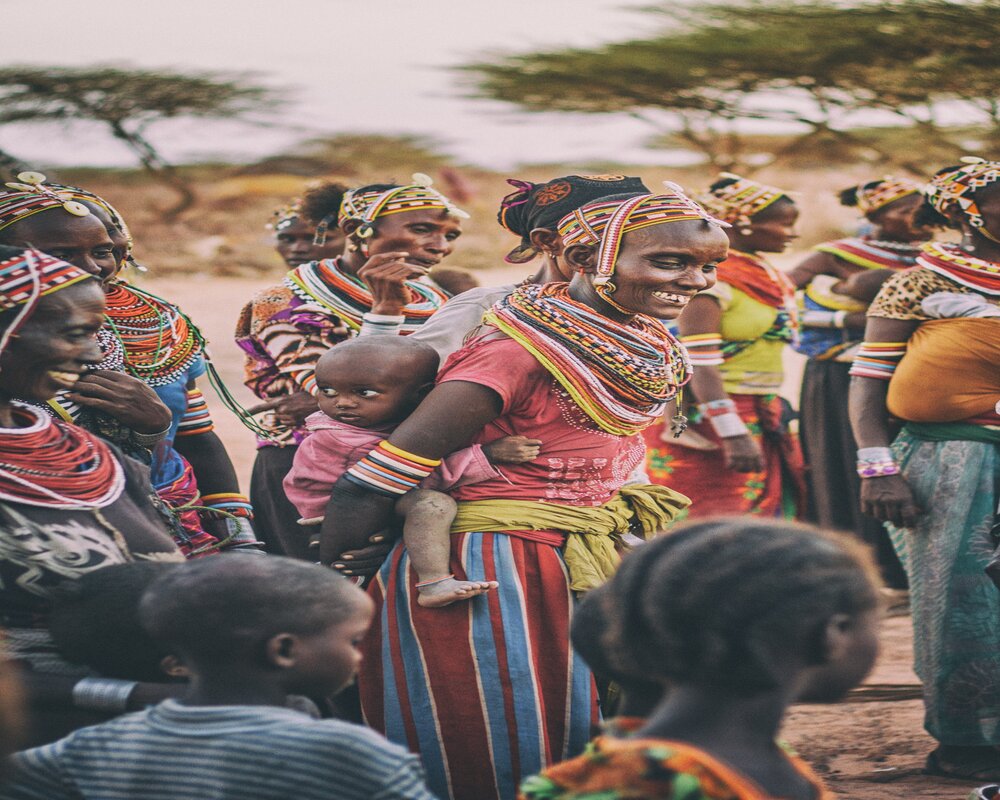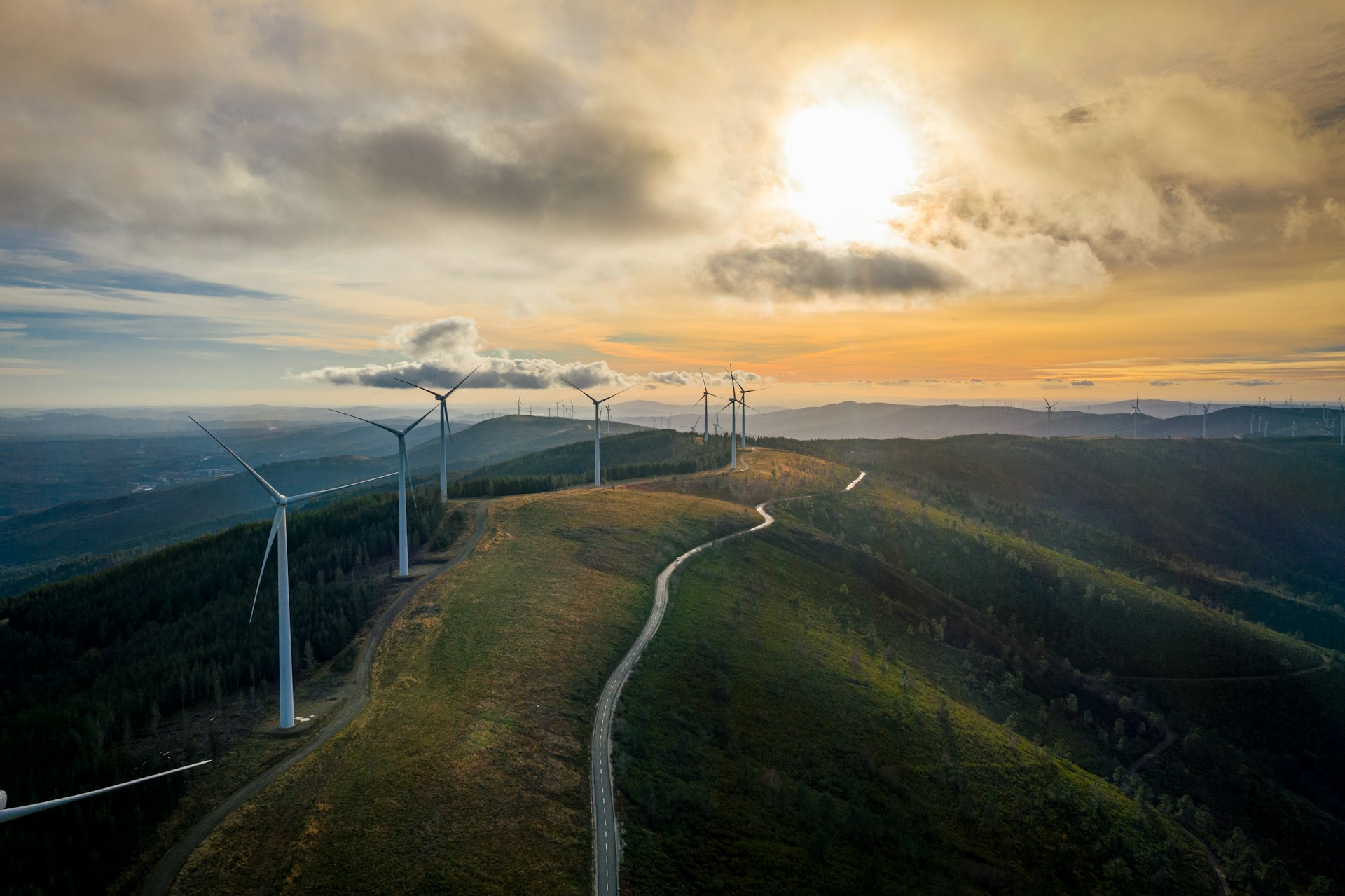Green Energy Revolution: Investing in Renewable Energy Across Africa
The study emphasizes how important policy innovation and financial incentives are in building a regulatory environment that speeds up the deployment of renewable energy across Africa.
The Centre for African Development & Investment promotes investments that prioritize the creation of clear, transparent, and stable policy environments that draw private sector investments, foster technological innovation, and make it easier to scale up renewable energy projects by looking at successful policy models, regulatory reforms, and incentive mechanisms.
Africa Needs Renewable Energy Now More Than Ever
Environmental protection and sustainable development are crucial at this point in history. Africa is a crucial continent in this situation, ready to take the lead in the transition to a green energy revolution.
The Centre for African Development And Investment promotes significant investments in renewable energy across the continent, emphasizing the transformative potential of utilizing clean and sustainable energy sources to promote economic growth, slow down climate change, and ensure long-term prosperity.
This thorough investigation dives into the many dimensions of renewable energy across Africa’s landscape, highlighting the continent’s enormous potential, the difficulties it faces, and the creative solutions that can help it move towards a sustainable and environmentally friendly future.
African Renewable Energy Potential Assessment: The Influence of Natural Resources

A strong renewable energy industry may be built on the abundant natural resources that Africa possesses.
The Centre for African Development & Investment emphasizes the value of making wise investments in infrastructure and technology to harness the abundant resources of the continent so as to meet the continent’s expanding energy needs in a sustainable manner.
Following are some successful case studies and initiatives that have utilized Africa’s potential for renewable energy:
- Noor Ouarzazate Solar Complex, Morocco: The Noor Ouarzazate Solar Complex in Morocco, one of the most significant renewable energy projects in Africa, is a huge solar power plant that makes use of the nation’s copious sunshine. It includes several phases, the first of which, Noor I, produces 160 megawatts (MW) of power. By 2030, Morocco wants to get 52% of its energy from renewable sources, which will lessen its dependency on fossil fuels and reduce greenhouse gas emissions. The complex is expected to play a substantial role in that effort.
- Lake Turkana Wind Power Project, Kenya: The largest wind farm in Africa, the Lake Turkana Wind Power Project in Kenya produces over 310 megawatts of clean electricity. The project, which is situated in an area with regular strong winds, intends to diversify Kenya’s energy mix and lessen reliance on pricey fossil fuel-based power generation. It is essential to solve the nation’s energy problems and helps the government’s effort to boost the proportion of renewable energy in the national grid.
Job creation and economic empowerment: the role of renewable energy
Investments in renewable energy support environmental sustainability while simultaneously acting as engines for job growth and economic emancipation in Africa. The essay explores the socioeconomic effects of renewable energy projects, highlighting their contribution to entrepreneurship, job creation, and local economic growth.
The Centre for African Development & Investment promotes investments that prioritize the development of a strong renewable energy ecosystem, ultimately fostering a sustainable path to prosperity for communities throughout the continent.
Overcoming Obstacles: Infrastructure Development and Policy Frameworks
The paper emphasizes how crucial it is to create supportive legislative frameworks and make substantial infrastructural investments in order to get over the obstacles preventing the broad use of renewable energy across Africa.
The Centre for African Development & Investment promotes extensive investments that address entry barriers and create an enabling environment for the sustainable growth of the renewable energy sector by examining the regulatory landscape, technological advancements, and the need for improved public-private partnerships.
Empowering Local Communities via Community Engagement and Sustainable Development Goals

The “Green Energy Revolution: Investing in Renewable Energy Across Africa” refers to the inclusive and participatory approach of involving and empowering local communities in the development and implementation of sustainable energy projects in Africa. Local communities are empowered through community engagement and sustainable development goals. To achieve a comprehensive and lasting impact on the communities’ economic, social, and environmental well-being, it attempts to integrate these activities with the Sustainable Development Goals (SDGs) of the United Nations.
These ideas can be connected in the following ways:
Community Engagement: This entails the active participation of neighbourhood groups in decision-making procedures pertaining to the creation of renewable energy projects. It involves talking to local leaders in the community, getting to know their needs and worries, and incorporating their suggestions into the creation and implementation of these projects. Through this strategy, the community is encouraged to feel a feeling of ownership and their perspectives are heard at every stage of the development process.
SDGs: Sustainable Development Objectives The SDGs provide a thorough framework for addressing issues including poverty, inequality, and environmental degradation on a global scale. Renewable energy efforts can support the larger development goal by being in line with particular SDGs, such as decent work and economic growth (SDG 8), affordable and clean energy (SDG 7), and sustainable communities (SDG 11). This coordination makes sure that the projects not only concentrate on producing clean energy but also support inclusive and sustainable development within the local community.
Building capacity is an important aspect of empowering local communities since it enables residents to take an active part in and profit from these efforts as well as give them access to renewable energy. This may entail offering educational and training opportunities pertaining to renewable energy technologies, fostering the growth of nearby companies that may contribute to the renewable energy value chain, and so on.
The Road to a Greener Future: Public-Private Partnerships and Sustainable Investments
In order to advance the green energy revolution across Africa, the essay emphasizes the importance of creating effective public-private partnerships and sustainable investments that make use of the skills, resources, and information of various stakeholders.
The Centre for African Development And Investment promotes a collaborative strategy that encourages knowledge sharing, resource mobilization, and the establishment of sustainable business models within the renewable energy sector. It does this by looking at successful collaboration models, investment frameworks, and multilateral initiatives. This essay highlights the immense potential for fostering innovation, scalability, and long-term socioeconomic impact.
Environmental protection and clean energy: reducing the effects of climate change
Together with its commitment to protecting the environment and reducing the effects of climate change, Africa is committed to investing in renewable energy. The essay emphasizes the crucial part that clean energy options play in lowering carbon emissions, fostering sustainable growth, and preserving the continent’s abundant biodiversity.
The Centre for African Development & Investment highlights the importance of prioritizing eco-friendly initiatives that not only address energy needs but also contribute to the global fight against climate change by examining the symbiotic relationship between renewable energy investments and environmental conservation efforts, positioning Africa as a responsible and proactive participant in the global sustainability agenda.
Fostering a Successful Renewable Energy Workforce through Skills Development and Job Creation
A competent workforce that fosters innovation and industry expansion is made possible by investments in Africa’s renewable energy sector. These investments also support sustainable development.
The Centre for African Development & Investment highlights the potential for investments in renewable energy to foster job creation, economic empowerment, and the development of human capital, thereby contributing to the overall socio-economic advancement of the continent. The Centre for African Development & Investment advocates for inclusive employment opportunities and the promotion of local talent.
Conclusion
The Centre for African Development And Investment sees a future where renewable energy serves as the cornerstone of sustainable development and economic success across the continent as Africa sets out on a revolutionary journey towards a green energy revolution.
Investing in Africa has the potential to become a worldwide leader in the shift to a greener, more sustainable future through strategic investments, cutting-edge technologies, and cooperative collaborations.
The article emphasizes the necessity of continued commitment and cooperation to realize the vision of a renewable energy-powered Africa that not only addresses the challenges of the present but also paves the way for a prosperous and sustainable future for future generations. It also emphasizes the importance of collective action.
FAQ’s
- Why is Africa a major force in the world’s transition to renewable energy?
Ans- With its abundant natural resources, including plenty of sunlight, wind, and hydroelectric potential, Africa can play a significant role in the world’s shift to renewable energy. Africa’s abundant renewable energy potential gives a tremendous opportunity for the continent to lead the way in developing green energy solutions and building a more environmentally conscious future. With a growing demand for sustainable power sources and a commitment to combatting climate change.
- What are the main issues preventing Africa from using renewable energy on a large scale?
Ans- Africa confronts a number of obstacles in implementing renewable energy, despite its enormous potential. These obstacles include a lack of adequate infrastructure, restricted access to financing, and a lack of encouraging laws and regulatory frameworks. Furthermore, the erratic nature of some renewable energy sources, like solar and wind, presents technical difficulties that call for creative solutions and investments in storage systems.
- How can renewable energy investments in Africa’s local communities and economies?
Ans- By stimulating technological innovation, increasing job opportunities, and promoting sustainable development, investments in renewable energy can have a large positive impact on local economies and communities. The installation of renewable energy plants frequently triggers the formation of ancillary companies and local supply chains, fostering economic development and improving community well-being in general.
- What part might foreign collaborations play in hastening Africa’s transition to renewable energy?
Ans- By promoting information sharing, granting access to cutting-edge technologies, and providing financial support for large-scale projects, international alliances can significantly speed up Africa’s transition to renewable energy. Collaboration between international stakeholders and African governments can assist in closing the money, skill, and resource gap, creating a climate that is favorable for the widespread use of renewable energy on the continent.
- How many energy access issues in arid regions of Africa be resolved by off-grid renewable energy solutions?
Ans- Off-grid renewable energy options, like solar household systems and mini-grids, can be crucial in addressing the problems associated with electricity access in rural parts of Africa. These options provide populations without access to the main grid with a dependable and sustainable source of electricity, enhancing their quality of life, and access to healthcare, and education in underserved areas.
- What major policy changes are required to encourage the expansion of renewable energy markets in Africa?
Ans- Key policy reforms, such as the implementation of supporting regulatory frameworks, the construction of transparent and stable investment policies, and the promotion of renewable energy incentives and subsidies, are imperative to fostering the growth of renewable energy markets in Africa. Additionally, encouraging public-private partnerships and the incorporation of renewable energy sources into national energy strategies can help to establish a climate that is favorable to market expansion and sustainable development.
- How can the renewable energy industry help Africa lessen the effects of climate change?
Ans- By lowering greenhouse gas emissions, boosting energy efficiency, and reducing dependency on fossil fuels, the renewable energy sector has the potential to greatly help Africa combat the effects of climate change. African nations can actively participate in efforts to mitigate climate change by switching to renewable energy sources while also promoting sustainable development and environmental preservation.
- What cutting-edge technologies are propelling the growth of renewable energy in Africa?
Ans- The development of renewable energy in Africa is being fueled by cutting-edge technology like solar photovoltaic systems, wind turbines, biomass energy solutions, and hydroelectric power plants. Furthermore, the advancement of energy storage technologies, smart grid technologies, and decentralized energy systems is revolutionizing the field of renewable energy and paving the way for more efficient and dependable power generation and delivery across the continent.
- How can efforts for public awareness and instruction encourage the use of renewable energy in Africa?
Ans- By fostering a deeper understanding of the advantages of sustainable energy and bringing attention to the environmental and financial benefits of switching to renewable sources, public awareness, and education campaigns play a crucial role in encouraging the adoption of renewable energy practices in Africa. These programs can foster a culture of environmental responsibility and promote mass participation in the continent’s green energy revolution by involving local communities, educational institutions, and policymakers.
- What are the long-term financial and environmental advantages of renewable energy investments in Africa?
Ans- The long-term economic and environmental benefits of investing in renewable energy in Africa include the development of jobs, increased energy security, less dependency on fossil fuels, and improved air quality. Additionally, the creation of sustainable energy infrastructure has the potential to promote technological advancement, draw in outside capital, and establish Africa as a global leader in the transition to a cleaner, more sustainable energy future, ultimately boosting the continent’s overall economic development, resilience, and environmental stewardship.





